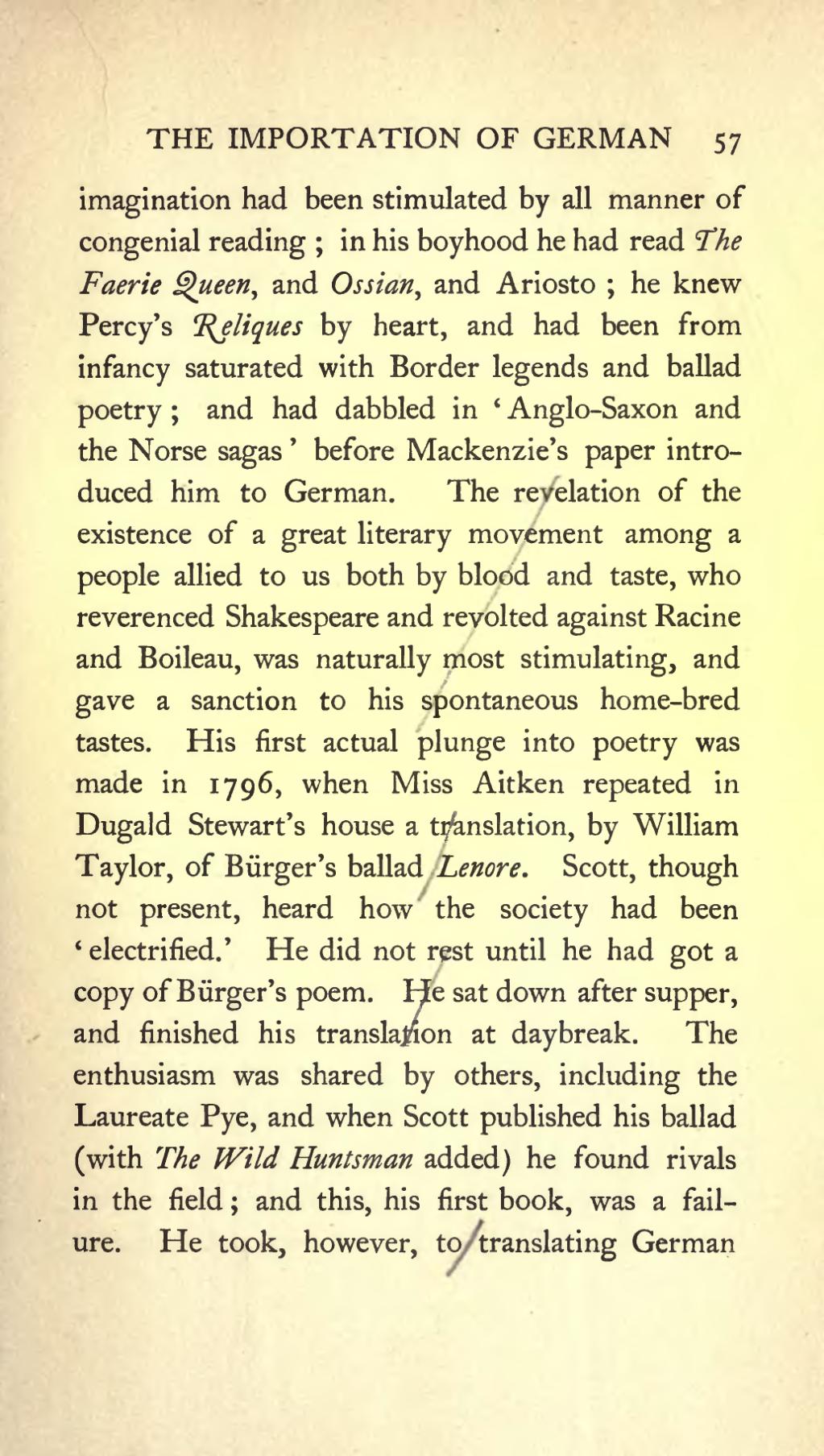imagination had been stimulated by all manner of congenial reading; in his boyhood he had read The Faerie Queen, and Ossian, and Ariosto; he knew Percy's Reliques by heart, and had been from infancy saturated with Border legends and ballad poetry; and had dabbled in 'Anglo-Saxon and the Norse sagas' before Mackenzie's paper introduced him to German. The revelation of the existence of a great literary movement among a people allied to us both by blood and taste, who reverenced Shakespeare and revolted against Racine and Boileau, was naturally most stimulating, and gave a sanction to his spontaneous home-bred tastes. His first actual plunge into poetry was made in 1796, when Miss Aitken repeated in Dugald Stewart's house a translation, by William Taylor, of Bürger's ballad Lenore. Scott, though not present, heard how the society had been 'electrified.' He did not rest until he had got a copy of Bürger's poem. He sat down after supper, and finished his translation at daybreak. The enthusiasm was shared by others, including the Laureate Pye, and when Scott published his ballad (with The Wild Huntsman added) he found rivals in the field; and this, his first book, was a failure. He took, however, to translating German
Page:Studies of a Biographer 2.djvu/69
This page has been validated.
THE IMPORTATION OF GERMAN
57
